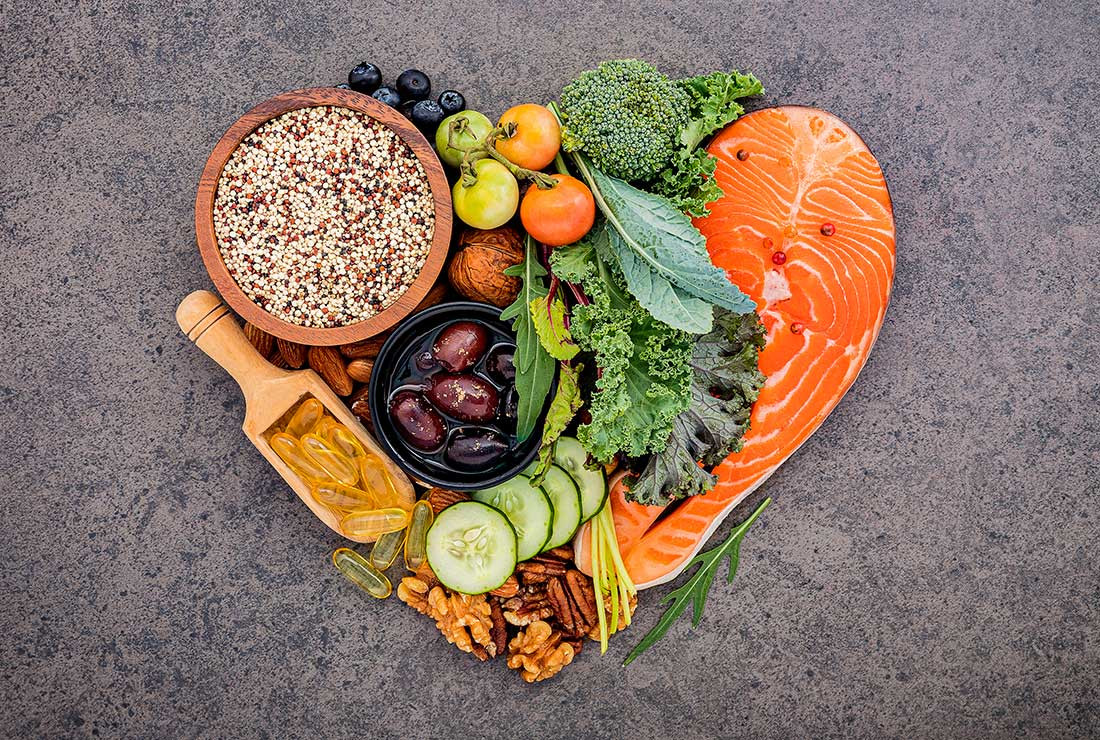How Gluten Free BBQ Sauce Elevates Your Vegan Grilling Game
How Gluten Free BBQ Sauce Elevates Your Vegan Grilling Game
Blog Article
Discovering the Advantages of Plant Based Meals in Encouraging Healthy And Balanced Food Choices
Plant-based dishes provide numerous benefits that can improve healthy and balanced eating practices. They focus on nutrient-dense active ingredients, adding to general health. These dishes are abundant in important vitamins and minerals, which can cause enhanced energy degrees and food digestion. In addition, they play a significant role in weight monitoring and persistent disease prevention. Nonetheless, the ramifications prolong beyond personal health, discussing environmental sustainability. Checking out these facets reveals an engaging instance for incorporating much more plant-based foods into everyday diets.
Understanding Plant-Based Diet Regimens
What defines a plant-based diet regimen? A plant-based diet mostly contains foods acquired from plants, consisting of veggies, fruits, nuts, grains, and seeds. While it stresses plant foods, it is not always vegan or vegan; some people may include percentages of pet products. The core principle revolves around prioritizing plant foods for their nutritional benefits and environmental sustainability. This diet regimen urges the intake of whole, minimally processed foods, frequently resulting in a boosted intake of essential nutrients. Furthermore, plant-based consuming promotes culinary creative thinking, as individuals explore diverse dishes and flavors. Inevitably, a plant-based diet regimen can be adjusted to match different lifestyles and choices, making it an adaptable selection for those looking for to incorporate even more plant foods into their dishes.
Wellness Conveniences of Plant-Based Cuisines
A plant-based diet plan uses a wide range of health and wellness advantages that can boost general well-being. Research indicates that individuals following this diet plan often experience reduced dangers of chronic diseases, such as heart problem, diabetic issues, and specific cancers cells. Rich in vitamins, minerals, and anti-oxidants, plant-based dishes sustain immune feature and promote cellular health and wellness. These diet plans are generally high in nutritional fiber, which aids digestion and helps keep healthy cholesterol degrees. The incorporation of whole foods, such as fruits, veggies, legumes, and whole grains, adds to enhanced power degrees and psychological quality. Additionally, the anti-inflammatory properties located in many plant-based foods can help minimize inflammation in the body, advertising much better joint and cardio health.
Effect On Weight Monitoring
The effect of plant-based dishes on weight management can be significant due to their nutrient density and reduced caloric intake. These dishes commonly provide crucial vitamins and minerals while decreasing vacant calories, advertising much healthier eating routines. As an outcome, individuals may locate it simpler to keep or shed weight with a plant-based diet.
Nutrient Thickness Benefits
While many diet plans focus on calorie restriction, the idea of nutrient density offers a more holistic method to weight management. Nutrient-dense foods are rich in vitamins, minerals, and antioxidants while being reduced in calories. This allows people to take in bigger sections without exceeding their caloric requirements. Plant-based meals, which often include fruits, veggies, whole grains, and beans, exhibit nutrient density. These foods not only sustain weight management however also advertise satiety, decreasing the chance of over-eating. Additionally, a high consumption of nutrient-dense foods can result in enhanced metabolic health, as they provide the needed nutrients for peak bodily feature. Eventually, prioritizing nutrient thickness can assist in healthier eating patterns and add to lasting weight management strategies.
Decreased Calorie Consumption
Minimized calorie consumption plays a significant role in effective weight monitoring, as it straight affects an individual's energy balance. Plant Based Beef. Plant-based dishes are commonly reduced in calories while being abundant in important nutrients, making them a perfect selection for those seeking to lower calorie intake without compromising nutrition. By incorporating more fruits, vegetables, whole grains, and legumes, individuals can appreciate bigger section sizes that advertise satiation. This strategy not just help in weight loss yet also fosters sustainable consuming habits. Furthermore, plant-based diets frequently minimize the consumption of refined foods high in included sugars and harmful fats, which can add to excess calorie intake. Inevitably, a concentrate on plant-based meals can sustain healthier weight administration methods and long-term health
Lowering the Threat of Persistent Diseases
Including plant-based dishes into one's diet plan can significantly lower the danger of persistent conditions. Many research studies show that diet plans abundant in fruits, veggies, entire grains, and legumes are associated with lowered incidences of cardiovascular disease, diabetic issues, and certain cancers cells. The high fiber content of plant-based foods adds to much better gastrointestinal health and wellness and enhanced cholesterol degrees, while phytochemicals and anti-oxidants found in these foods may assist combat inflammation and oxidative anxiety. Furthermore, plant-based diets are commonly lower in hydrogenated fats and cholesterol, further promoting cardiovascular health and wellness. By prioritizing plant-based alternatives, people can enhance their overall health and develop a much healthier way of living that mitigates the possibility of creating chronic health problems, thus fostering a more durable body.
Environmental Sustainability of Plant-Based Consuming
Just how can plant-based consuming add to ecological sustainability? Shifting to a plant-based diet regimen greatly reduces the ecological influence related to food production. Livestock farming is a leading reason for deforestation, greenhouse gas exhausts, and water depletion. By taking in more plant-based foods, people can reduce their carbon impact and preserve natural deposits. Additionally, plant-based diets usually require less power and land contrasted to meat manufacturing, making them a much more lasting option. The farming of plants for straight human consumption is typically a lot more efficient, as it eliminates the need for feed conversion. By embracing plant-based eating routines, culture can advertise biodiversity, reduce climate change, and promote a straight from the source much healthier world for future generations. Ultimately, this adjustment supports both human health and environmental sustainability.
Easy Ways to Integrate Plant-Based Foods
Embracing a plant-based diet plan not just benefits the environment yet likewise provides numerous chances for individuals to improve their day-to-day meals. One efficient way to begin is by gradually replacing pet items with plant options, such as using almond milk rather of dairy. Integrating a lot more veggies right into different dishes can additionally be transformative; including spinach to smoothies or making use of cauliflower rice can boost meals. Preparation regular menus that highlight vegetables, grains, and seasonal fruit and vegetables advertises range and minimizes tension during meal prep work. In addition, exploring regional farmers' markets can influence creativity and give fresh active ingredients. Simple modifications, like going with whole grain bread or attempting plant-based snacks, can make a substantial influence on healthier consuming routines while fostering a greater admiration for plant foods.
Delicious Plant-Based Dish Ideas to Attempt

Checking out scrumptious plant-based meal concepts can boost one's cooking experience while promoting wellness - BBQ Sauces. Quick and simple dishes including nutrient-packed active ingredients provide a selection of options for hectic timetables. Furthermore, savory global meals can introduce exciting tastes and appearances to plant-based consuming
Quick and Easy Recipes
Numerous people seeking much healthier food choices are transforming to very easy and fast plant-based recipes that accommodate a variety of lifestyles and preferences. These recipes commonly prioritize very little preparation time, making them obtainable for busy timetables. Straightforward options such as quinoa salads, veggie stir-fries, and chickpea wraps can be prepared in under 30 mins, permitting healthy dishes without substantial cooking. Ingredients like fresh veggies, legumes, and entire grains work as the structure for these dishes, supplying convenience and flavor. Additionally, lots of quick dishes can be tailored to suit individual choices, making it easy to incorporate seasonal fruit and vegetables or favored seasonings. This method not only promotes much healthier consuming routines yet likewise motivates imagination in the cooking area.
Nutrient-Packed Active ingredients
Nutrient-packed components act as the structure for scrumptious plant-based meals that not only please the taste buds but additionally support total health and wellness. Whole grains, such as quinoa and brownish rice, offer crucial fiber and protein, while legumes like chickpeas and lentils provide abundant resources of iron and folate. Integrating dynamic vegetables, such as kale, bell, and spinach peppers, enhances dishes with vitamins A, C, and K. Seeds and nuts add healthy fats, anti-oxidants, and additional protein, making them ideal for treats or garnishes. Fruits, whether fresh or dried, add all-natural sweet taste and critical nutrients. By creatively incorporating these active ingredients, individuals can check out an array of satisfying and nutrient-dense meals that advertise health and maintain energy levels throughout the day.
Flavorful International Cuisines
What makes global cuisine so enticing is its capacity to showcase diverse flavors while embracing plant-based ingredients. From the vibrant flavors of Indian chickpea curry to the fresh natural herbs of a Mediterranean tabbouleh, plant-based meals offer a worldwide tapestry of preferences. Thai eco-friendly curry, abundant with coconut milk and diverse veggies, attracts attention for its fragrant blend. The smoky notes of a Mexican black bean taco, covered with avocado and salsa, offer an enjoyable experience. Japanese ramen can be changed with miso-based brew and a variety of veggies for a why not try this out hearty meal. These examples websites show how worldwide recipes can inspire scrumptious, health-conscious consuming, highlighting the versatility of plant-based active ingredients in culinary traditions worldwide.
Frequently Asked Questions
What Prevail False Impressions Regarding Plant-Based Diet Regimens?
Usual misconceptions about plant-based diets include beliefs that they do not have enough healthy protein, are excessively limiting, or are costly - Plant Based Beef. Numerous also erroneously presume that plant-based consuming is not suitable for every age groups or way of livings

Exactly how to Change to a Plant-Based Diet Slowly?
To shift to a plant-based diet progressively, one need to begin by including more plant foods into dishes, replacing animal products slowly, try out brand-new recipes, and focusing on whole foods to guarantee balanced nutrition.
Are Plant-Based Meals Costly to Prepare?
The question of whether plant-based meals are pricey usually occurs. While some active ingredients can be costly, several affordable alternatives exist. With cautious preparation and seasonal options, preparing nutritious plant-based meals can be economical.
Can Children Thrive on a Plant-Based Diet regimen?
The question of children's flourishing on a plant-based diet regimen has gathered interest. Study suggests that with proper planning, youngsters can grow and fulfill dietary needs, taking advantage of diverse nutrients discovered in fruits, veggies, and whole grains.

What Are the Best Sources of Protein in Plant-Based Meals?
The ideal sources of protein in plant-based meals consist of legumes, beans, lentils, quinoa, tofu, tempeh, nuts, and seeds. These alternatives provide vital amino acids needed for growth, maintenance, and total health without animal items. Rich in vitamins, antioxidants, and minerals, plant-based dishes sustain immune feature and promote cellular wellness. Incorporating plant-based meals right into one's diet regimen can greatly decrease the risk of chronic diseases. Embracing a plant-based diet regimen not only benefits the setting but likewise offers many possibilities for people to boost their daily dishes. Exploring scrumptious plant-based dish concepts can raise one's culinary experience while advertising health and wellness. Nutrient-packed ingredients serve as the foundation for tasty plant-based dishes that not only satisfy the taste however likewise support overall health and wellness.
Report this page